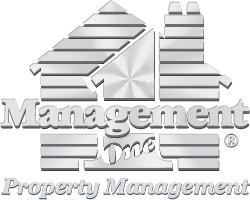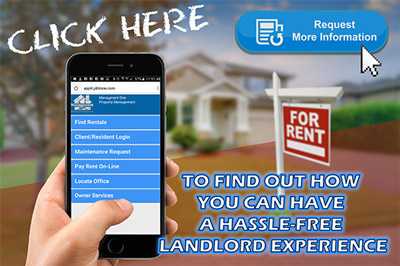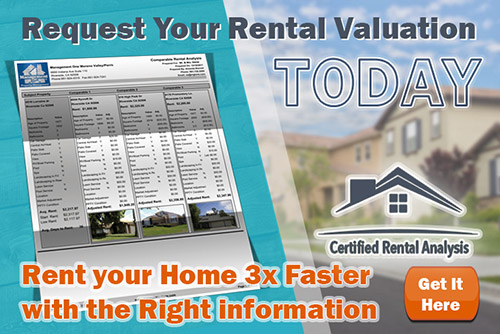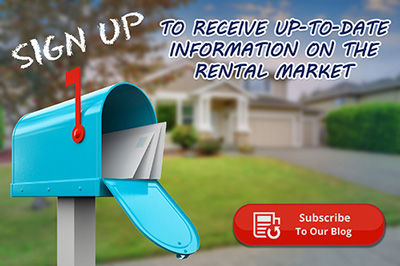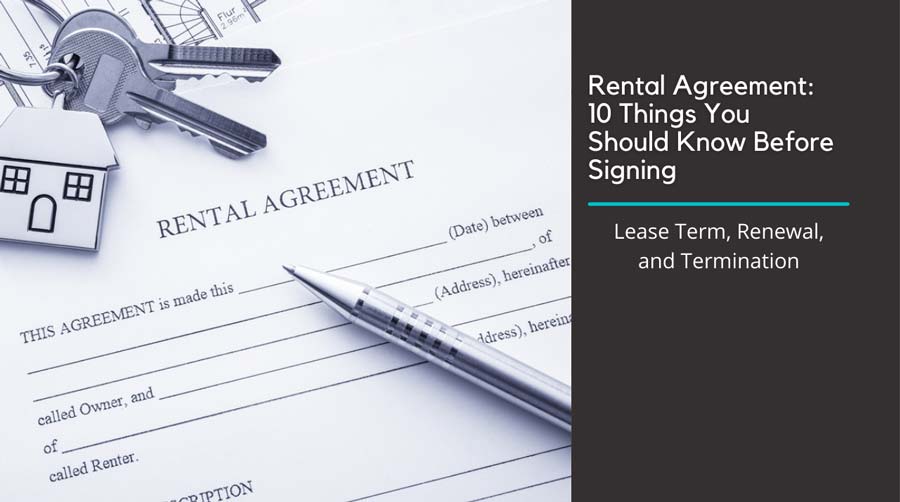
Rental Agreement: 10 Things You Should Know Before Signing
Today is the day you move into your new home! Before you can do that, you have to sign your rental agreement or lease and get the keys to your home. A rental agreement is legally binding, and its purpose is to protect both the resident and the owner and/or property management company. Let’s be real here for a moment, reading and signing lengthy documents is boring. However, it is a necessary evil that must be done.
In Management One, we try to make the process smooth and painless, fun even, for our clients. We throw a “Welcome Party” complete with balloons, gifts, and we even have your name on all eight jumbo TV screens in our office. Residents can review the entire agreement via email from the comfort of their own home before signing in our office. By emailing the agreement ahead of time, our new residents can review it without us looking over their shoulders. On the actual day of signing, I walk the residents through the lease/rental agreement and “review” the most important parts.
Knowing the information that is in your lease/rental agreement is very important. Over the next few minutes, I will share with you the top 10 items; you should pay close attention to in the lease/rental agreement you are about to sign. There is nothing worse than finding yourself in a situation and hearing the dreaded words “well, you should have read the fine print.”
Important sections to review before you sign any lease/rental agreement
1. Lease Term, Renewal, and Termination
Generally, a standard lease is for a 12-month period. The lease term can vary depending on the owner, landlord, and/or property management company. Make sure the start date and end date are correct, especially if you made special arrangements for a different rental term.

As your lease term comes to an end, it is common to get notice 30 or 60 days before renewal of your lease. Typically, you will have two options, renew the lease for another year or go month to month. If no notice is given, the lease expires and/or becomes month-to-month automatically, which most commonly results in a larger increase in rent. Compared to, if you signed another one-year lease then the rent rate would be less. Typically, the owner, landlord, or property management company will charge a lesser rent amount if they know the property will be occupied for another year. Occasionally, the lease may even automatically renew for another year, leaving you locked in at a potentially higher price. Your landlord or property management company must give you notice in advance if they are going to raise the rent for the new lease period. Usually, that requires at least a 30-day notice.
Most lease terms require at least a 30-day notice in writing if you plan to vacate the property. You may be charged additional rent if you fail to proved proper notice.
Again, READ your lease carefully so you will be fully aware of all the details and terms of the agreement.

2. Paying Rent and Grace Period
Next, to the information found in item #1, this is very important to know. It can be very costly if you’re late on your rent and it can even affect your rental history. Your agreement will indicate the date rent is due and how payment is to be made (cashier’s check, personal check, online, etc.). The grace period is how many days you have after the due date to pay the rent without being charged a late fee. If you don’t pay rent by the end of the grace period, late fees will be assessed. Late fees calculations vary. Some fees can be a percentage of the rent plus posting fees or can be a flat fee. The late fees can add up quickly, just one day late can set you back nearly $100-$200 depending on how the fees are calculated. I am sure we can all think of better things to do with a $100-$200!

3. Security Deposit
Depending on where you live, security deposits can be as much as two times the amount of one month’s rent for unfurnished properties and up to 3 times the rent for furnished properties. Usually ranges from 100% - 135% of one month’s rent. With some landlords and property management companies, it can vary depending on your credit history. If you happen to have a low or poor credit score, a landlord might ask you for two months of rent.
When will your security deposit be returned after move-out? A lease will state the time frame for security deposit refunds. Depending on where you live the return date can be anywhere from 21 days to 31 days. Check with your local laws to see what applies in your area. Keep in mind; you must meet your obligations – pay rent, vacating the property on time, and return the property in good condition.

4. Remodeling Restrictions
Most lease agreements indicate that you are not allowed to paint rooms or remodel any part of the home. Other times, you will be required to get the landlord’s permission before making any changes. Painting a room might seem like no big deal, but if you spill paint on the carpet, paint over light sockets, or don’t mask off the ceiling with painter’s tape now you are going to be responsible for correcting that. If you do make changes to the property without their consent, they can and will use your security deposit to pay for any costs to return the property to its original condition.

5. The Pet Policy
If you have a pet, expect to pay either a one-time charge or a monthly pet rent in addition to your monthly rent and in some cases a combination of both. There can also be restrictions as to the type of animal, breed, and size. Of course, any service animal is exempt under Fair Housing Laws. If you are moving in without a pet and decide to add one later, be sure to know if the landlord allows pets. The last thing you want to do is get a pet and find out that you can’t have one. More than likely, you will have to remove the pet.

6. Renters Insurance
Nowadays, most management companies and apartment complexes require renters insurance. And even if they don’t, it’s in your best interest to carry a policy. You can get a decent policy from most insurance companies that offer car insurance. Companies such as Lemonade, Farmers, or even State Farm. Many leases require that residents acquire and keep renter’s insurance for the term of your lease. Even if your landlord or property management company does not require renters insurance, you should consider purchasing a policy. Having renter’s insurance can protect you if there is a fire, robbery or another emergency.
True Story: In earlier 2018 we made it mandatory for all residents to obtain and maintain a renter’s insurance policy. Shortly after we instituted this policy, a resident had a major flood in their garage for the water heater leaking. He called to thank us for requiring him to obtain the policy. You see if he didn’t have the policy all the damage caused to his personal belongings that were in the garage would have been a total loss. The homeowner’s policy will only cover the building and not the personal belongings of the resident. For the cost of two Starbucks coffees a month, you can have a renter’s insurance coverage. It’s worth the investment.

7. Access to the Premises
Read this section closely and if this section is not in your lease/rental agreement ask for clarification. Some private Landlords believe that since they own the property, they can enter at any time. And legally, that is not true. Most states require at least a 24-hour notice before entering the property. Landlords and property management companies can check the property condition. They are also allowed to show the property to prospective residents if you have decided not to renew your lease as long as it is outlined in your agreement that the landlord can show the property.

8. Resident Responsibilities
Besides paying rent on time and keeping the property in good condition, your rental agreement should also state other responsibilities of the residents. Examples of resident responsibilities might include lawn care and maintenance, pool care, utilities, parking locations, pet policy, compliance with laws, etc. Read your lease agreement.

9. What is Covered by Owner
Your rental agreement will also state what items are covered by the owner – lawn service, pool service, utilities, or appliances that will cover. Such as “owner pays for lawn service” or “owner will warranty washer & dryer.” You will want to make sure to pay attention to these details.

10. Repairs
Your rental agreement should have a maintenance and repairs section. A maintenance section will tell you what is expected of you as a resident as well as maintenance procedures. Remember you are renting a used home. Things are going to need maintenance and repair occasionally. Any reputable owner, landlord, or property management company will take care of situations as they arise. However, maintaining the home and using the premises in the way it was designed and intended to will help keep maintenance and repairs down.
Before moving in, you will want to make sure what work – if any – has been completed before you take possession of the property.
Rental Agreements Vary
One reason leases are so detailed is because landlord/resident laws can be different for each state. A resident has many protections, but because the lease is prepared by the owner, landlord, or property management company, most of the terms will be favorable to them. So, to protect yourself, READ YOUR LEASE AGREEMENT BEFORE SIGNING. It’s also important that you know the laws in your state and your specific County. You can contact your local Fair Housing Office for more information regarding the laws in your area.
